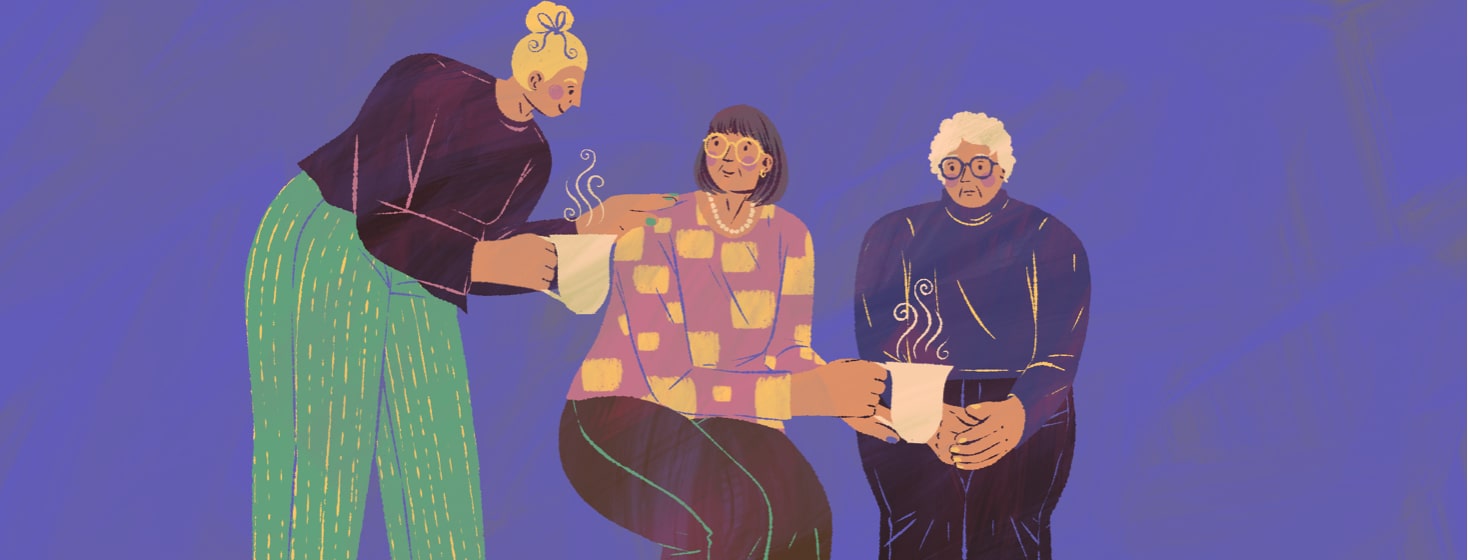My Name is Amy But I Identify as an Incidental Caregiver
As a professional in the field of Alzheimer's and related dementia disorders for over 30 years, of course, I am very familiar with all types of caregivers. I mean, after all, I do both professional training and work with families on how to be a caregiver, I am an expert... Or so I thought.
In my professional experience, I have identified different categories or types of caregivers each different from the other. Although each with its own set of challenges and stressors.
Types of caregivers
There is the primary caregiver, this is usually a family member or friend who either resides with the person with dementia or lives nearby. The primary caregiver is often the person who provides social, emotional, and physical assistance to the person with dementia as well as overseeing and assisting with financial and medical obligations and needs.
Next, we have the supplemental caregiver who is often family, friend, professional - often either a certified home health aid (CHHA) or a certified nursing assistant (CNA) - a hired, non-certified, or trained person who may have had caregiving experience. The supplemental caregiver often resides with the person with dementia or may come in hours a day and/or days a week to provide hands-on care and assistance.
There is the distance caregiver, this is the friend, family member, or guardian who does not live close by or, in another state or country. This caregiver may also be the primary caregiver but from a distance; setting up and oversees the day-to-day care needs of the person with Alzheimer's or related dementia disorder. As well as possibly providing assistance and oversite with scheduling appointments, paying bills, and managing finances. They may also be scheduling supplemental caregivers and coordinating with family and friends to provide care.
I have found that these are the more common roles that most individuals are familiar with.
A new type of caregiver
When my grandmother developed vascular dementia the caregiving responsibilities seemed straightforward. My mother was close by and as the daughter, stepped into the role of primary caregiver. Initially, my older sister, also being local, moved in with my grandmother as a supplemental caregiver.
As my grandmother's condition progressed, increased professional supplemental caregivers came in shifts to take on the physical, social and emotional support for my grandmother. While my mom continued to do the scheduling, financial, medical, and daughter duties.
I live out of state but, as a professional in the field for several years at this point, I provide both distance and supplemental caregiving advice and assistance. I never actually identifying as a caregiver per se. What I had become, however, was an incidental caregiver.
The incidental caregiver
Miriam Webster defines one meaning of incidental to be "occurring merely by chance or without intention or calculation." The way that I have come to define it is the family or friend whose primary concern is not for the person with dementia, after all, between my mother and myself, she was well cared for.
My concern and stress were all about my mother's wellbeing. There have been many studies on the social, emotional, physical, and financial effects caregiving responsibilities have on the primary caregiver. Often to the detriment of their own health, but I was seeing it firsthand.
Attempting to shoulder some of the burden
I began to try and do anything I could to shoulder some of those stressors, and afford my mother time to take care of herself. Again, I am a professional, I have first-hand experience with seeing how caregiving takes a toll on the caregiver's well-being. Of course, I had all kinds of advice on ways to make sure "you take care of yourself."
I must be honest and say when it's your own family, everything I know and teach as a professional went completely out the window. In other words, my heart jumped in front of my brain as I like to say. I was now just a daughter so worried about my mom's wellbeing that it began to affect my own. Even during the journey, I did not identify as a caregiver. Certainly, I did not have a "rite" to be stressed or feel the weight of the responsibility of the primary caregiver - the daughter watching her mother go on this journey with dementia.
Lessons learned
So, why did I feel the need to share my story and my "new" caregiver category, the incidental caregiver? Caregiving roles change and overlap throughout disease progression and have well-defined stressors, emotions, and effects.
The incidental caregiver also carries these same characteristics, and it affects our physical and emotional wellbeing. The only way to begin to gain some sense of control is to know that this is legitimate and can affect you as profoundly as being the primary caregiver. Follow the golden rule: if you can't take care of yourself, you can't take care of anyone else.
Tell us about your experience as an incidental caregiver in the comments below, or share your story with the community.

Join the conversation